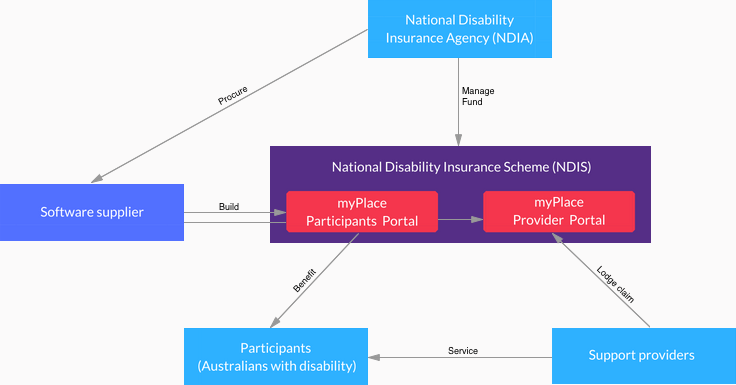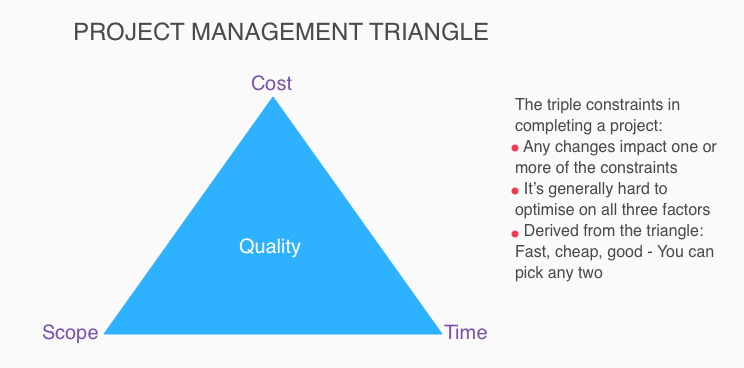A software glitch in the recently revamped Australian Government’s NDIS Payment Portal, has prevented disability support providers from claiming payments owed to them by the national fund. It is approaching the two-month mark and the Government is still working on a fix.
 Different parties involved in the NDIS
Different parties involved in the NDIS
Although Enabled has no involvement with the new NDIS platform, some of our team members have partners working for these support providers. This gives us a reasonable view of the glitch from the providers side, which is now being described by the media as a debacle.
My sympathies are definitely with these support providers, who by this time would be owed many tens of thousands, a majority of which would be unpaid employee salaries.
Across the years, I have had plenty to say about the State and National Government’s disappointing IT procurement practices, but there is a new sentiment shared between NDIS support providers which I want to discuss here.
I have heard them say: “Software development companies intentionally cause these issues so that they can go on charging the government to make more money from the job!”
In my opinion, the more likely truth is bad project management, with the fault shared by both the Government and Software supplier. The poor result is often caused by combining too much with too little in too little time.
 Source: Project Smart
Source: Project Smart
Software development is a relatively new field compared to other business services and processes, e.g. manufacturing. Hence, it takes time for people to truly understand the complexity surrounding technology projects. Unfortunately, instances like the NDIS system glitch seem to introduce/reinforce misperceptions and generalisations.
Check out our recent post on misperceptions about software development here.
As for intentionally causing projects to go longer in order to milk it for what it is worth? I see little logic in this being a preferred strategy and I wrote about Enabled’s own experience with this perception a little over a year ago, reposted below:
IN THE MILKING SHED
MAY 27, 2015
Occasionally towards the end of a project, the anxiety of clients and also our team gradually increases, until it reaches palpable levels.
Understandably so, budgets may be on the verge of being exceeded as early mover advantage is slowly being whittled away.
It is the frustration of moving towards the oasis of a releasable product, yet during these times feels more like a mirage always at the edge of the horizon.
Concerned clients might take to forums seeking an answer to the question “Will my app ever be finished?”
Unfortunately, some answers they find can suggest that developers make their cream by extending projects infinitum in order to charge more. Sadly, it is possible that some may have legitimately experienced this practice, but when clients receive this information it can be unfairly projected on the honest developer.
In reality, the scope of software development is quite nebulous and even very good work by both client and developer doesn’t ensure that a vision is easily achieved.
I can tell you from my experience, we love to complete a project. There is more joy and more opportunity in efficiently completed projects than extending projects by squeezing remaining drops of resources from our clients.
Instead, our hope is to release a project and only return to it when it is enjoying good take-up and yielding returns so that our clients can invest these into additional development phases.
We also understand that developing the app is only the start, our clients need resources left to take the next step. Milking them is one way to ensure that repeat business is made impossible.
So to summarise:
- Every job we complete is a step closer to a new job
- This job can take the form of a second phase because our client realised success
- Or a satisfied client with a successful job will tell a friend and grow our client base
- The closer we take a client to their limit, the less likely that any of these can happen

